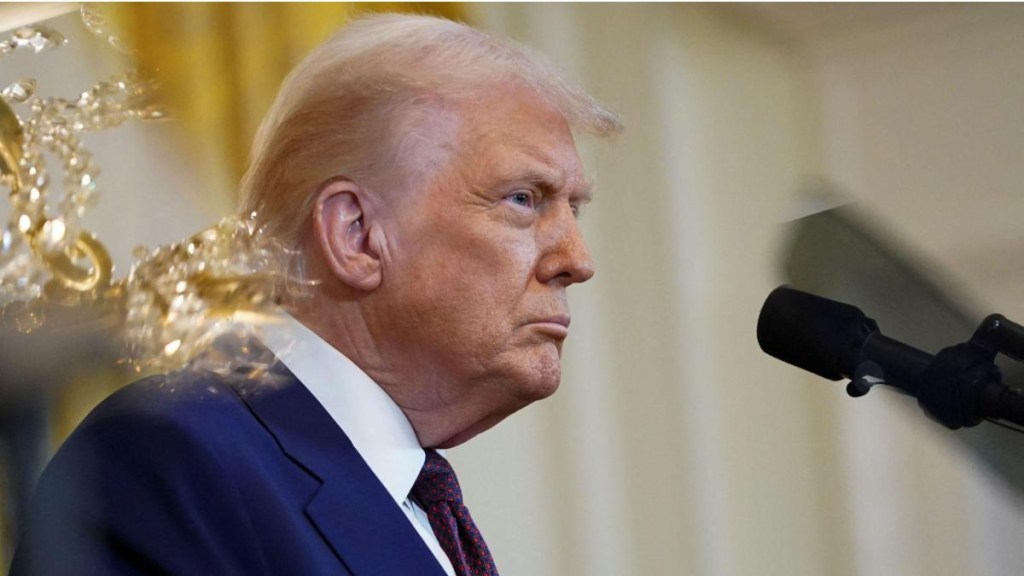President Donald Trump is considering protecting sectors like automakers from U.S. tariffs and his administration will make an announcement later on Wednesday about tariffs imposed on Canada and Mexico, the U.S. Commerce Department chief said.
Speaking in an interview on Bloomberg TV, Howard Lutnick said Trump would make the final decision on whether to grant any relief to certain industries. He said the 25% tariff levied on Canada and Mexico would remain with an eye toward renegotiating a pact with the two neighboring countries next year.
“The president gets to make the decision,” the Commerce secretary said. “But our expectation is that it’ll be categories. It will be 25%, but it’ll be — there will be some categories left out. It could well be autos. Could be others as well.”
Lutnick said that the administration was looking at the U.S.-Mexico-Canada Agreement on trade and whether certain sectors had complied with the deal enacted under Trump’s first term in office. Asked if autos could see an exemption from the tariffs that went into effect early on Tuesday, Lutnick told Bloomberg: “It’s not really an exemption.”
The Commerce chief did not say when the announcement would come on Wednesday, and Trump has no public events on his schedule following his late night speech to Congress on Tuesday.
Lutnick first floated the idea of tariff relief for companies that follow the USMCA rules of origin on Tuesday, just hours after Trump imposed punishing 25% duties on all imports from Canada and Mexico and an extra 10% duty on Chinese goods.
Trump declared that the three countries still have not done enough to halt the flow of fentanyl and the deadly opioid’s precursor chemicals to the U.S., an accusation dismissed by Canada as “completely bogus.”
The tariffs pose extreme difficulties for automakers, which produce vehicles in all three countries and often ship parts across North American borders multiple times as they get built up into systems and finished vehicles.
BOON FOR DETROIT
An exemption from tariffs for cars and trucks that comply with USMCA’s complex North American content rules for duty-free access to the U.S. market would be a boon for traditional Detroit automakers Ford, General Motors and Stellantis.
Their vehicles comply with USMCA’s complex 75% North American content rules – requirements agreed by Trump during his first term to keep parts production in the region.
For full duty-free regional access, the rules also require 40% of a passenger car’s content to be manufactured in the United States or Canada, based on a list of “core parts” including engines, transmissions, body panels and chassis components. The threshold for pickup trucks is 45%.
An exemption also would benefit some foreign brand automakers with large U.S. production footprints, including Honda and Toyota, but some competitors that don’t comply would have to pay the full 25% U.S. tariffs.
The relief under consideration would also eliminate the 10% tariff on Canadian energy imports, such as crude oil and gasoline, which comply with the USMCA rules of origin, a source familiar with the discussions said.
Automaker sources told Reuters that one option was a 30-day exemption but the companies would need to demonstrate plans to invest more in U.S. manufacturing.
Trump is scheduled to speak with Canadian Prime Minister Justin Trudeau on Wednesday, a source familiar with the matter
told Reuters
.
Lutnick, who met with the Detroit automakers over the issue in recent days, said that he would discuss their compliance with the 2020 trade deal signed by Trump during his first term.
“If you complied with the agreement, then maybe you avoid tariffs, and if you didn’t comply with the agreement, well, you did so at your own risk. You knew you weren’t complying,” Lutnick said.
Lutnick also said that wider reciprocal tariffs were still coming April 2, with some being levied right away while others could take weeks or months before being imposed.
Those tariffs would match the import duty rates charged by other countries and offset their non-tariff barriers. These also would hit Canada and Mexico, but could be a bigger problem for the European Union, which has higher vehicle tariffs than the U.S. EU countries also have value-added taxes, which the Trump administration considers equivalent to a tariff.

